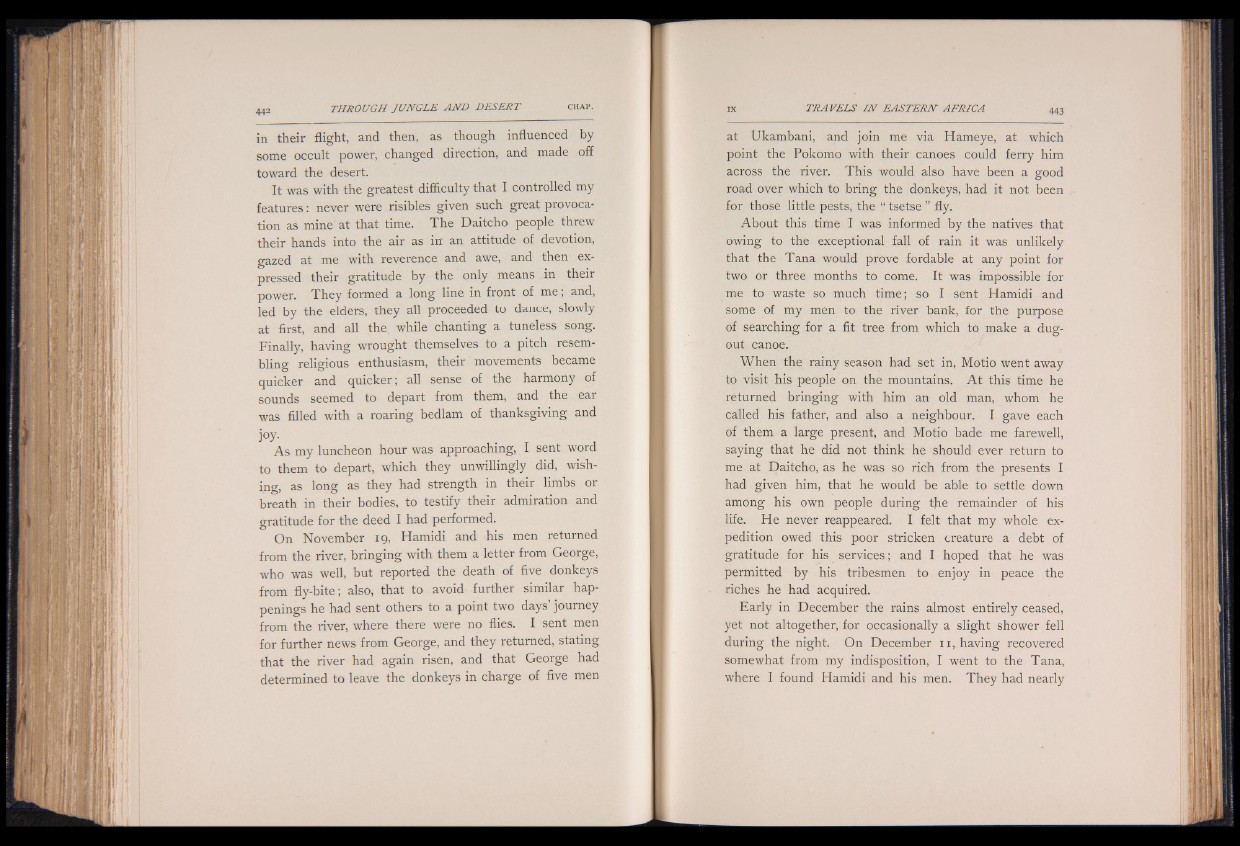
in their flight, and then, as though influenced by
some occult power, changed direction, and made off
toward the desert.
It was with the greatest difficulty that I controlled my
features: never were risibles given such great provocation
as mine at that time. The Daitcho people threw
their hands into the air as in an attitude of devotion,
gazed at me with reverence and awe, and then expressed
their gratitude by the only means in their
power. They formed a long line in front of me, and,
led by the elders, they dll proceeded to dance, slowly
at first, and all the while chanting a tuneless song.
Finally, having wrought themselves to a pitch resembling
religious enthusiasm, their movements became
quicker and quicker; all sense of the harmony of
sounds seemed to depart from them, and the ear
was filled with a roaring bedlam of thanksgiving and
j° y - . T .
As my luncheon hour was approaching, I sent word
to them to depart, which they unwillingly did, wishing,
as long as they had strength in their limbs or
breath in their bodies, to testify their admiration and
gratitude for the deed I had performed.
On November 19, Hamidi and his men returned
from the river, bringing with them a letter from George,
who was well, but reported the death of five donkeys
from fly-bite; also, that to avoid further similar happenings
he had sent others to a point two days’ journey
from the river, where there were no flies. I sent men
for further news from George, and they returned, stating
that the river had again risen, and that George had
determined to leave the donkeys in charge of five men
at Ukambani, and join me via Hameye, at which
point the Pokomo with their canoes could ferry him
across the river. This would also have been a good
road over which to bring the donkeys, had it not been
for those little pests, the “ tsetse ” fly.
About this time I was informed by the natives that
owing to the exceptional fall of rain it was unlikely
that the Tana would prove fordable at any point for
two or three months to come. It was impossible for
me to waste so much time; so I sent Hamidi and
some of my men to the river bank, for the purpose
of searching for a fit tree from which to make a dug-
out canoe.
When the rainy season had set in, Motio went away
to visit his people on the mountains. A t this time he
returned bringing with him an old man, whom he
called his father, and also a neighbour. I gave each
of them a large present, and Motio bade me farewell,
saying that he did not think he should ever return to
me at Daitcho, as he was so rich from the presents I
had given him, that he would be able to settle down
among his own people during the remainder of his
life. He never reappeared. I felt that my whole expedition
owed this poor stricken creature a debt of
gratitude for his services; and I hoped that he was
permitted by his tribesmen to enjoy in peace the
riches he had acquired.
Early in December the rains almost entirely ceased,
yet not altogether, for occasionally a slight shower fell
during the night. On December 'JSL having recovered
somewhat from my indisposition, I went to the Tana,
where I found Hamidi and his men. They had nearly